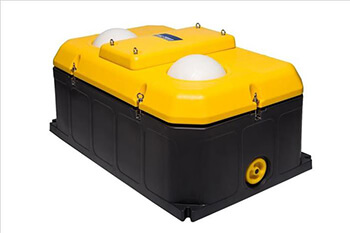Automatic Watering Benefits
Jan 20, 2020

Water is crucial to the well-being of livestock and horses. But providing continual fresh, clean water to these animals can be a challenge for owners who do so through the use of water troughs. The water can become stagnant, and this contaminated water is unhealthy to the animals and discourages water intake.
Automatic waterers can help alleviate this problem. Benefits of automatic waterers are:
• Cleaner water
• Keep water cool in the summer and prevent freezing during the winter
• Less time/labor spent cleaning troughs
• Less water waste; no more dumping and cleaning troughs every few days during the summer
• Less water evaporation
• Help prevent dehydration
• Energy efficient
• Durability
Your local Co-op has access to a variety of automatic waterers from Ritchie, Miraco, and Tru-Test. Visit with the friendly folks at the Co-op nearest you — they’ll provide information and advice on the best waterer to fit your farm’s needs.
Automatic waterers can help alleviate this problem. Benefits of automatic waterers are:
• Cleaner water
• Keep water cool in the summer and prevent freezing during the winter
• Less time/labor spent cleaning troughs
• Less water waste; no more dumping and cleaning troughs every few days during the summer
• Less water evaporation
• Help prevent dehydration
• Energy efficient
• Durability
Your local Co-op has access to a variety of automatic waterers from Ritchie, Miraco, and Tru-Test. Visit with the friendly folks at the Co-op nearest you — they’ll provide information and advice on the best waterer to fit your farm’s needs.